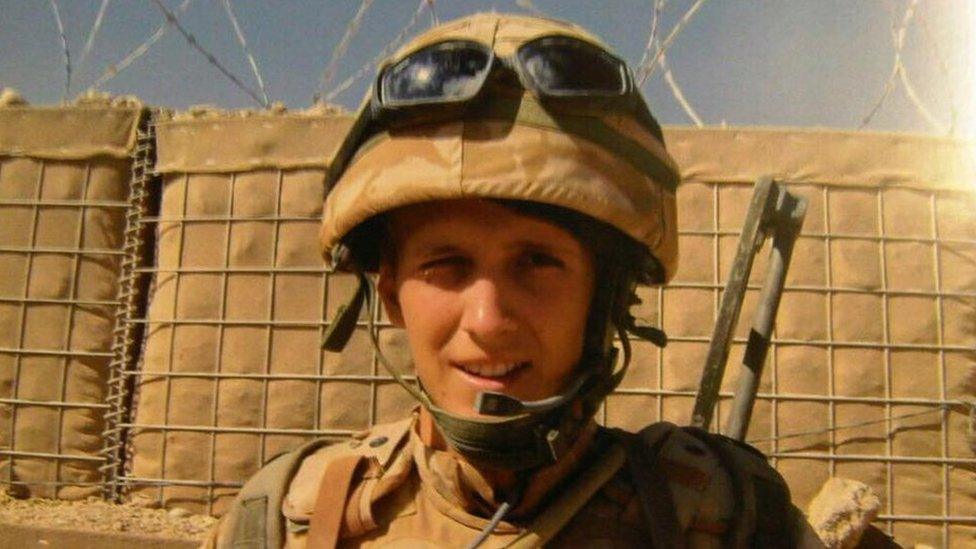A human is not designed to see what I saw
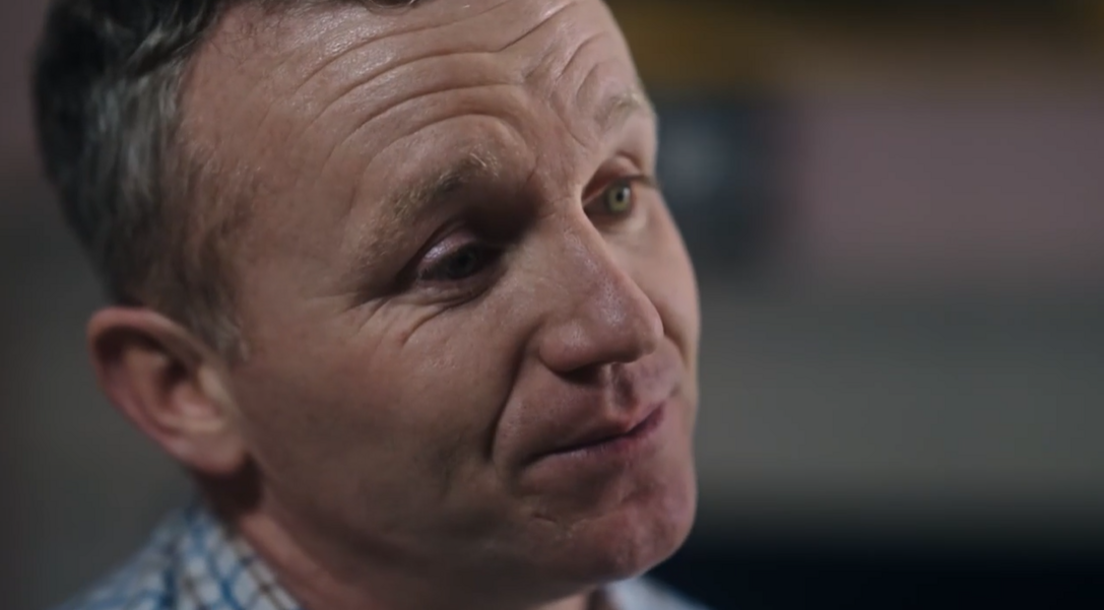
Sgt Steven Peters said "everything came to a head" in the years following his tour of Afghanistan
- Published
A former Welsh Guard has described having a "catastrophic breakdown" after witnessing untold horrors in Afghanistan.
Steven Peters was deployed to Helmand Province in 2009, during a period which became known as the British Army’s bloodiest summer in more than 50 years.
During one patrol, he witnessed an interpreter with whom he had a close personal relationship step on an improvised explosive device (IED).
"What I saw that morning – a human being is not designed to see," said Sgt Peters, 42, from Anglesey.
He is one of 10 former soldiers who have spoken to the BBC as part of Helmand: Tour of Duty, a new documentary marking ten years since the withdrawal of British combat troops from Afghanistan.
Article contains details some readers may find distressing
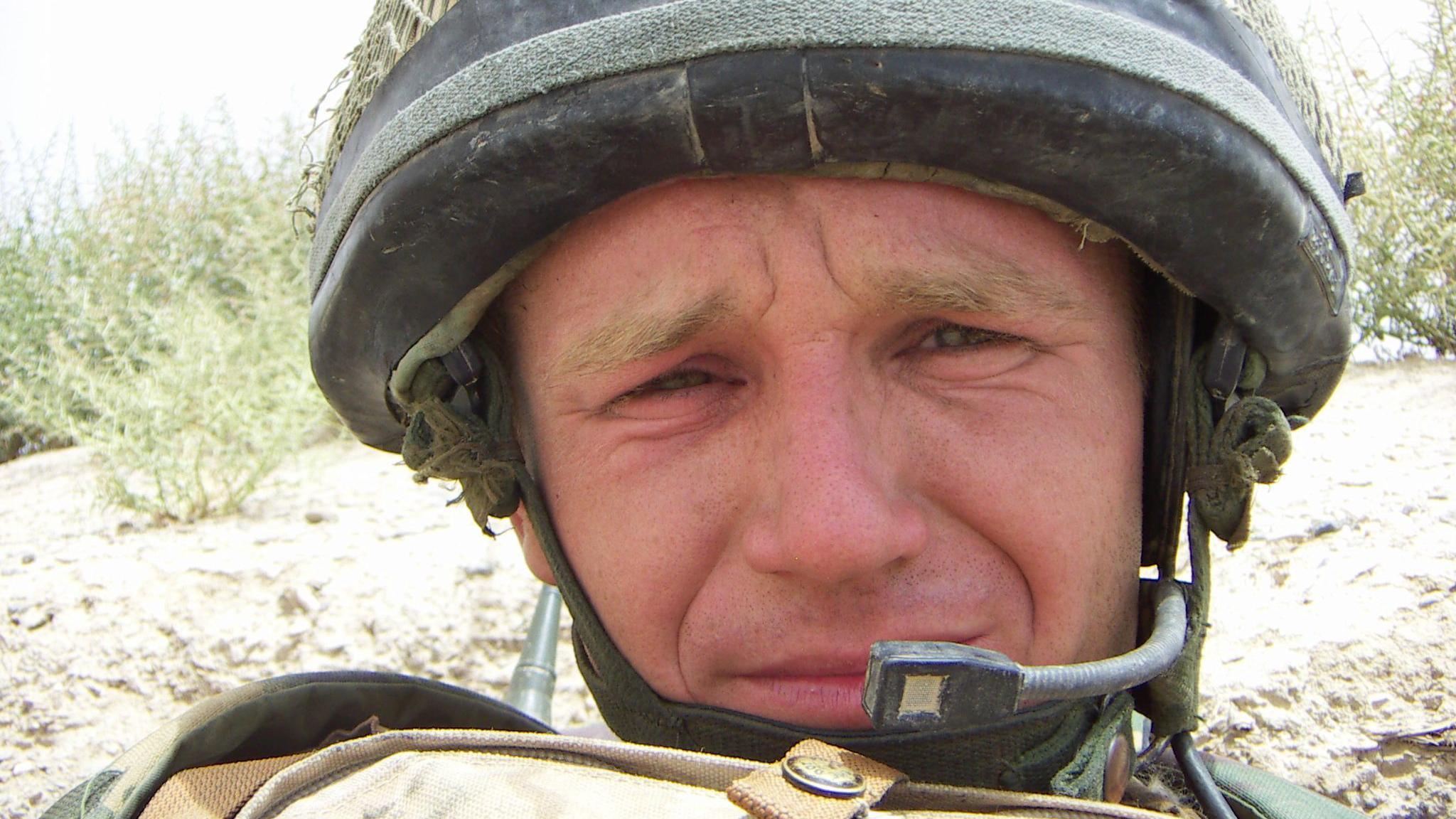
Sgt Peters had months of therapy after ending his tour in Afghanistan
In September 2009, Sgt Peters' platoon had less than a month of their tour remaining when they were chosen to lead an assault on a Taliban-held compound.
"I had built a strong relationship with one of the interpreters, Ahmed Popal," Sgt Peters told the BBC.
"He was telling me that he was looking forward to the end of the week because it was time for him to go home to see his young children, his family."
The assault began in darkness.
"We were patrolling through a high populated Taliban area. Knowing it’s the most dangerous kilometre square area in the world, that was reported at the time, we called it IED central," he said.
Suddenly, straight ahead of Sgt Peters, Interpreter Popal stepped on an IED.
'There was nothing left of that human'
Sgt Peters said all he could remember of the moments immediately afterwards was "dust, pitch black, the smell of smoke, the smell of burnt flesh, and screaming".
"I was sat down with my legs in this massive crater," he said.
"I could see a dark object at the bottom of that crater, so I got my torch out and started looking.
"What I saw that morning – a human being is not designed to see. It was Popal.
"I realised that his body was cut in half – there was nothing left from his belly button down. So I’m thinking, how can I... how can I save this person?"
Afghanistan: Wife reveals wrench of watching husband go to war
Sgt Peters gave Interpreter Popal mouth-to-mouth, but he died soon afterwards.
"There was nothing left of that human, of Ahmed [Popal]," said Sgt Peters.
"And all he wanted to do was to go home and see his family the next day.
"Because of the bond that I had with this interpreter and what we had been through, and the conversations that we had, it hit me really hard. And it’s affected me a lot.
"I walked straight into my little compound where I was living, dropped to my knees and I just started crying and crying. And I was there for a good 45 minutes – I wanted to punch, I wanted to scream."
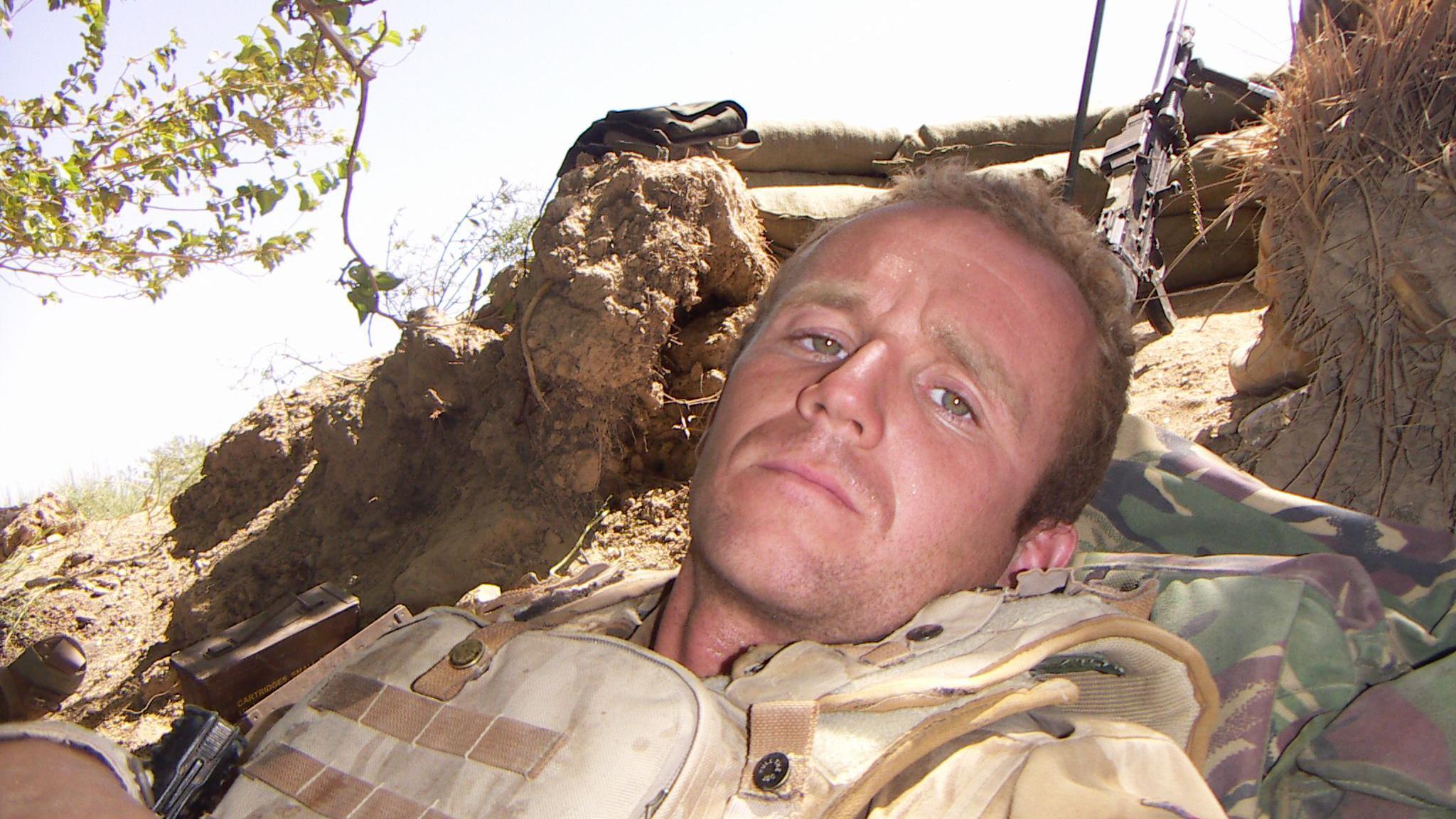
Sgt Peters said his platoon was in a "very bad place" by the end of the tour
Ten men lost their lives whilst serving in the Welsh Guards battlegroup during the summer of 2009.
Sgt Peters said his platoon was in a "very bad place" by the end of the tour.
"In the years following that tour, everything came to a head," he said.
"I had a catastrophic breakdown. The therapy lasted nine months, I’m glad it happened – because if it didn't, that breakdown would still be chasing me to this day."
Over 20 years of deployment in Afghanistan, there were 457 deaths of UK armed forces personnel. , external
The number of deaths and casualties peaked during 2009 and 2010.
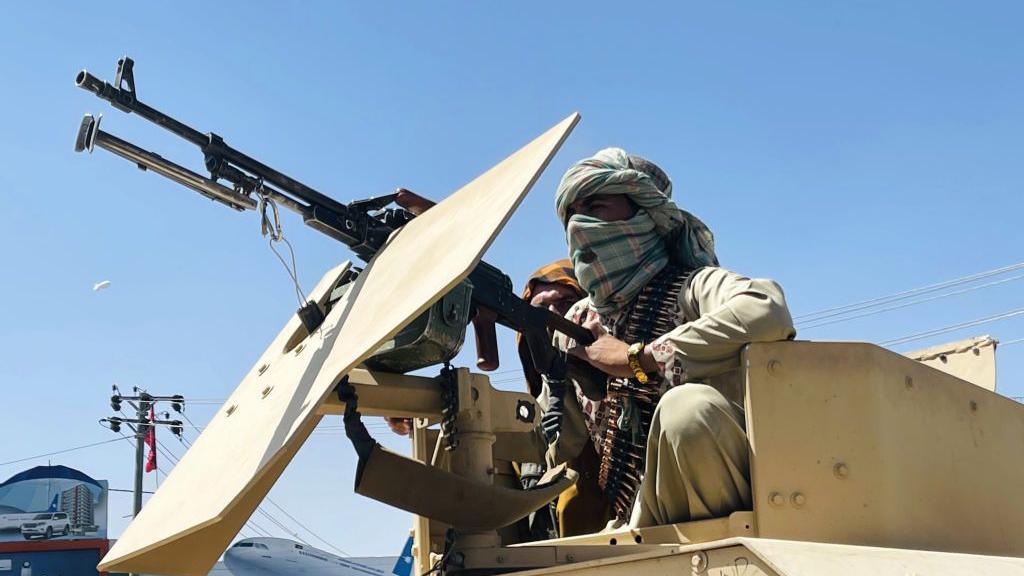
The Taliban recapturing Kabul, Afghanistan, in August 2021
In August 2021, seven years after the withdrawal of British troops and 20 years since the war began, the Taliban regained control of Afghanistan, including Helmand Province.
"I remember the day Kabul fell," said Sgt Peters, who left the British Army last year.
"What was it all for? All those lives that were lost. It was all taken away."
Sgt Peters said despite this, he felt proud of his service in Afghanistan.
"We went there following the mission, the political mission, and we did our part in 2009.
"And I’m proud of what I did during my time in Afghanistan."
If you have been affected by any of the issues raised in this story, information and support is available via BBC Action Line.
Helmand: Tour of Duty airs on BBC Two and BBC Two Wales at 21:00 BST on Wednesday 30 October.
- Published3 September 2021
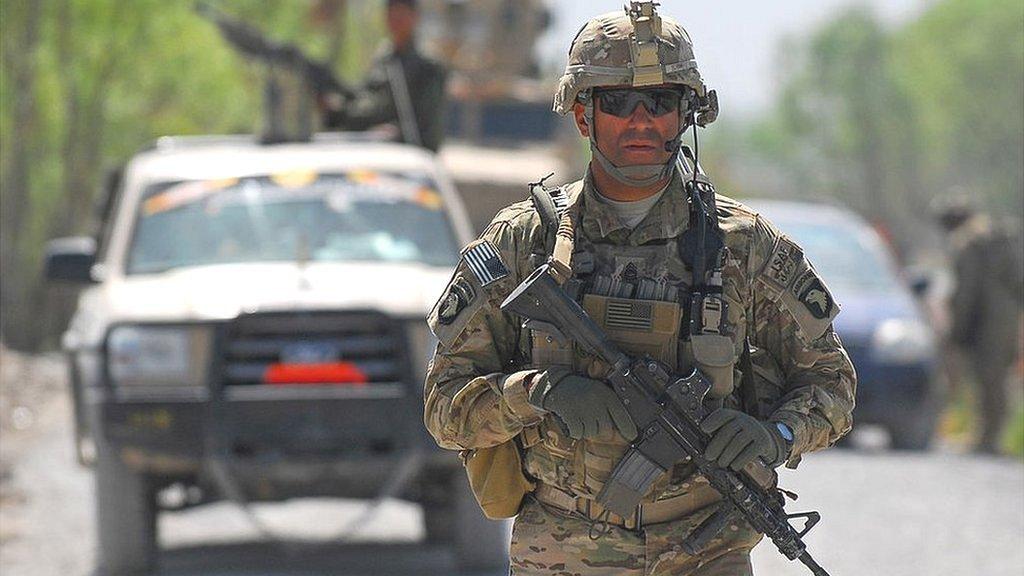
- Published17 April 2021
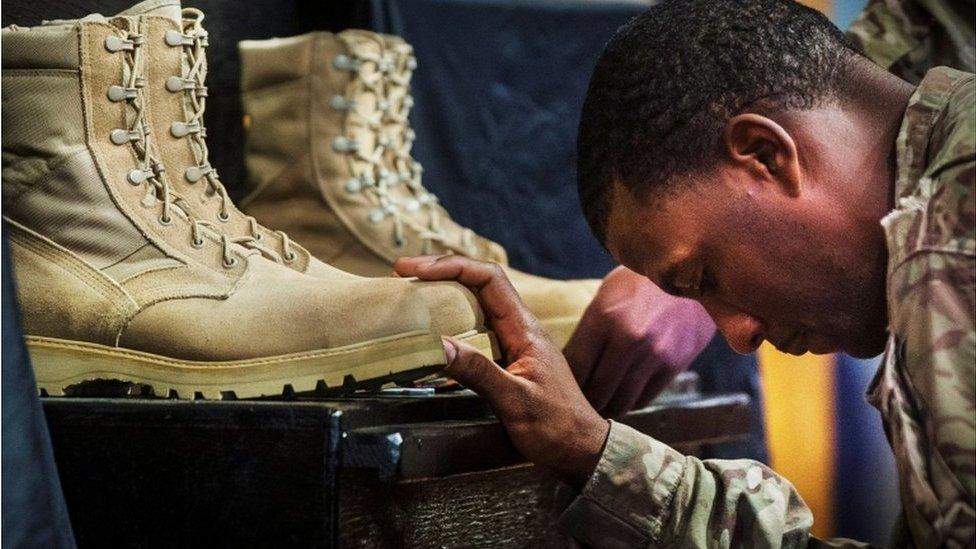
- Published16 August 2021
